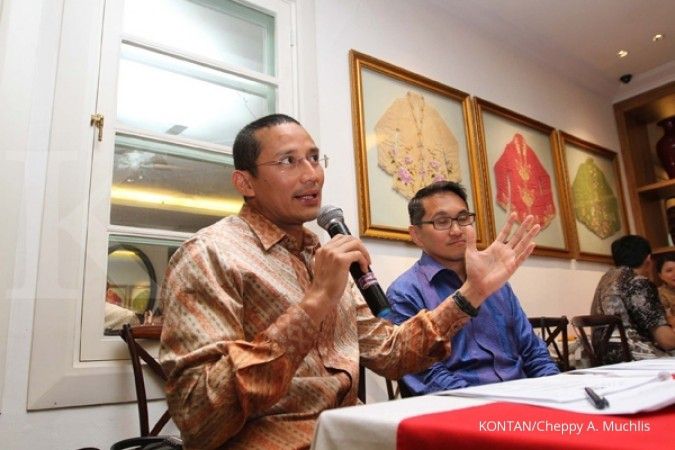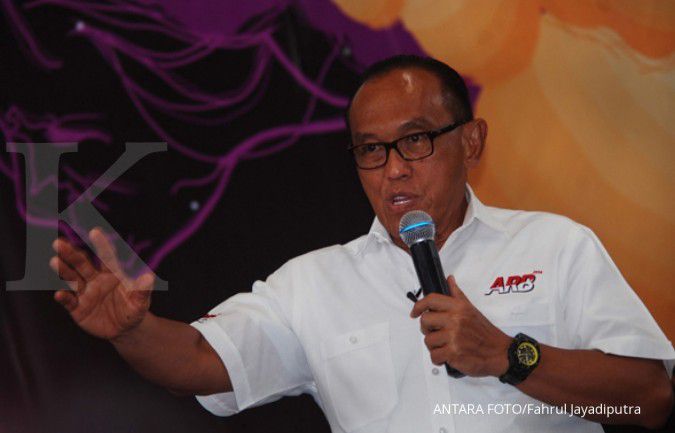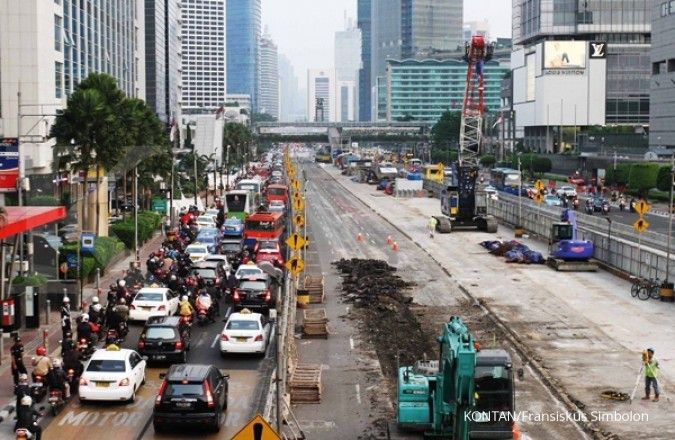JAKARTA. On the heels of the Ebola outbreak in Africa and suspected cases in Saudi Arabia, the government has tightened the screening of visitors from the regions at embassies and international gateways.
The precaution was taken following a warning issued by the World Health Organization (WHO) on the potential of the spread of the lethal virus worldwide.
The Ebola outbreak, the biggest in history, has killed more than 1,000 people in Nigeria, Guinea, Sierra Leone and Liberia. While the Saudi Arabian Health Ministry said a dead Saudi man had tested negative for Ebola, hundreds of others are suspected of having caught the illness, which causes horrific suffering, including bursting blood vessels and bleeding from ears and other orifices.
The WHO has declared the outbreak “a public health emergency of international concern” and recommends countries take preventive measures, such as strengthening surveillance at airports and issuing travel advisories.
Health Minister Nafsiah Mboi said on Wednesday that the government had alerted its embassies in Saudi Arabia and Africa to be cautious when issuing visas.
“We have boosted surveillance and awareness. Those coming from and going to those countries, particularly Saudi and Nigeria, need to be watched,” Nafsiah said at the State Palace.
“The Law and Human Rights Ministry [which oversees immigration offices] has said that visa issuance will be tightened and [potential visitors] will be required to go through health checks.”
The ministry has also alerted medical offices at seaports and airports, while its biological laboratory, which has tight security, is ready to check anyone suspected of carrying the Ebola virus into the country.
In spite of calling on residents to remain alert, Nafsiah said people should not worry since Indonesia, as a WHO member, was familiar with measures to prevent and handle Ebola.
Having first appeared in a village near the Ebola River in the Democratic Republic of Congo and a remote area in Sudan in 1976, the Ebola virus is spread to people by contact with the skin or bodily fluids, such as sweat, saliva and blood.
Patients infected with the virus usually experience flu-like symptoms.
There is no vaccine, no treatment and the disease is almost always fatal.
Although the country has yet to issue a travel advisory, Foreign Minister Marty Natalegawa said the ministry and Indonesian Embassy in Nigeria had prioritized efforts to prevent Ebola entering the country.
“I believe that the WHO advisory has been circulated and [we] have asked our embassy in Nigeria to raise people’s awareness and to report to us,” Marty said.
Indonesia, Marty added, had even called for international cooperation between East Asian countries, centering on air transportation and health workers, during last week’s East Asia Summit ministerial meeting in Naypyidaw, Myanmar.
During an event aimed at raising awareness of Ebola among medical officers and representatives of hospitals across the city, Jakarta Health Agency head Dien Emmawati said that although the chance of the virus entering the country was small, preventive actions had to taken.
“The thermal screening test equipment at Soekarno-Hatta International Airport and Tanjung Priok Port have been activated,” she added.
According to Dien, her agency had also issued a circular to hospitals, clinics, community health centers (Puskesmas) and other health facilities on information about the virus and how to properly treat infected patients.
A number of those who have contracted the virus in Africa are, in fact, doctors and nurses of the patients. (Ina Parlina and Corry Elyda)
Govt tightens visa screening to prevent Ebola
August 14, 2014, 02.15 PM
/2014/08/12/2106010339.jpg)
ILUSTRASI. Kode Redeem FF Hari ini 2 Maret 2023 dan Cara Klaim Skin hingga Emote
Source: The Jakarta Post
| Editor: Hendra Gunawan
Latest News
-
February 24, 2026, 03.38 PM
Eni to Reach Final Investment Decision for Indonesia Gas Projects Next Month
-
February 24, 2026, 01.00 PM
Asia Stocks Try to Steady after Wall Street Selloff Sims Mood
-
February 23, 2026, 04.50 PM
Wall Street Futures and Dollar Slide on Trump Tariff Tumult
-
February 23, 2026, 02.17 PM
Indonesia's Government Spending Jumps 26% in January 2026
-
February 23, 2026, 01.47 PM
Indonesia's Government Spending Jumps 26% in January
-
February 21, 2026, 06.00 AM
Indonesia's Pertamina to Maintain Bidding Process for US Energy Imports
-
February 20, 2026, 01.23 PM
Indonesia Secures 19% Tariff Deal with US, Palm Oil and Other Commodities Exempt
-
February 20, 2026, 08.33 AM
Indonesia, US Sign Agreement on Reciprocal Trade, Indonesian Ministry Says
-
February 19, 2026, 08.12 AM
Indonesia, Freeport Units Sign MoU to Extend Mining Permit beyond 2041














